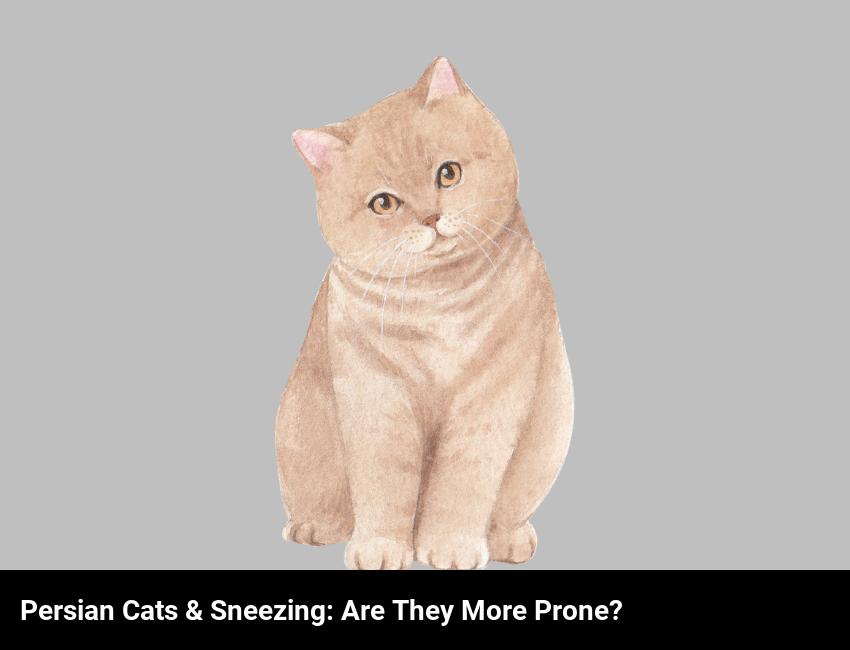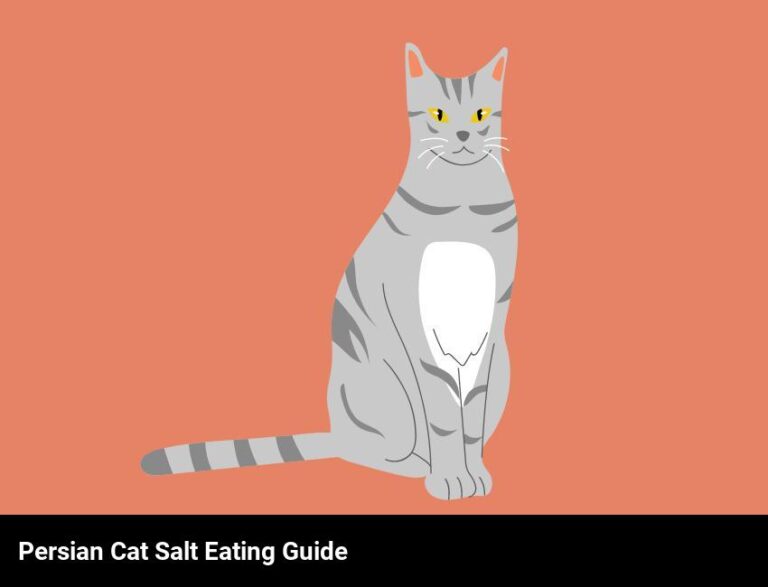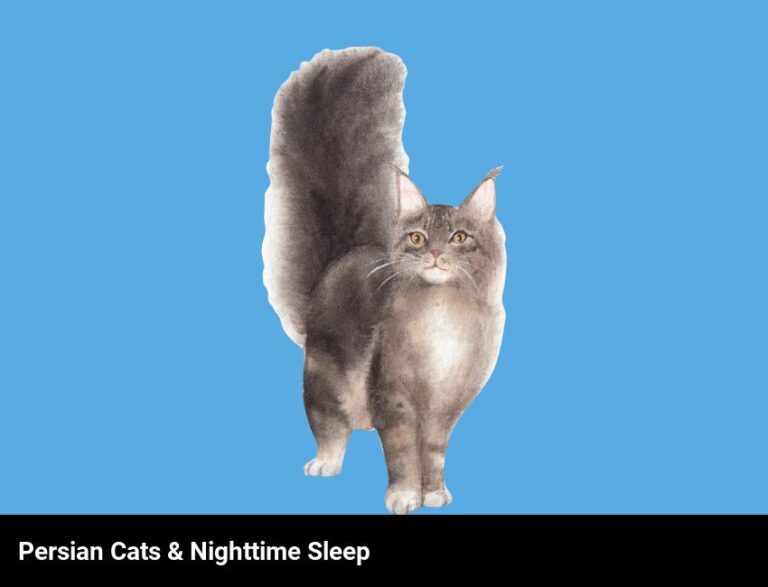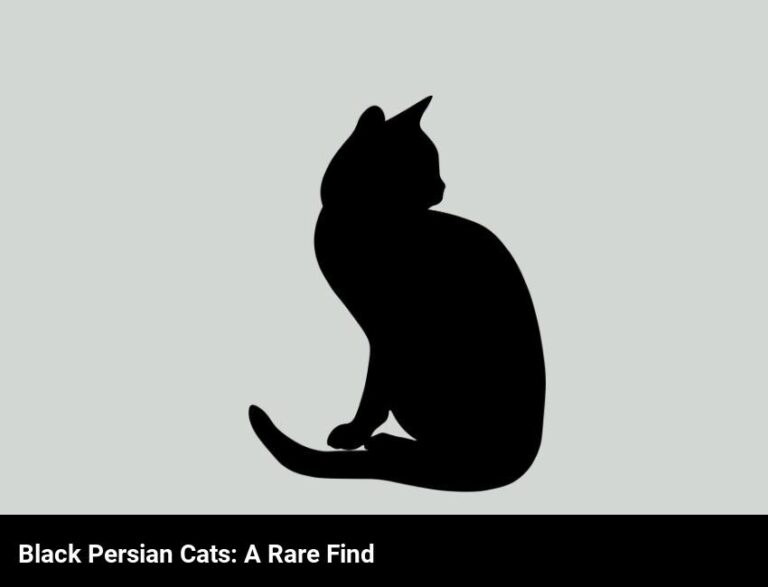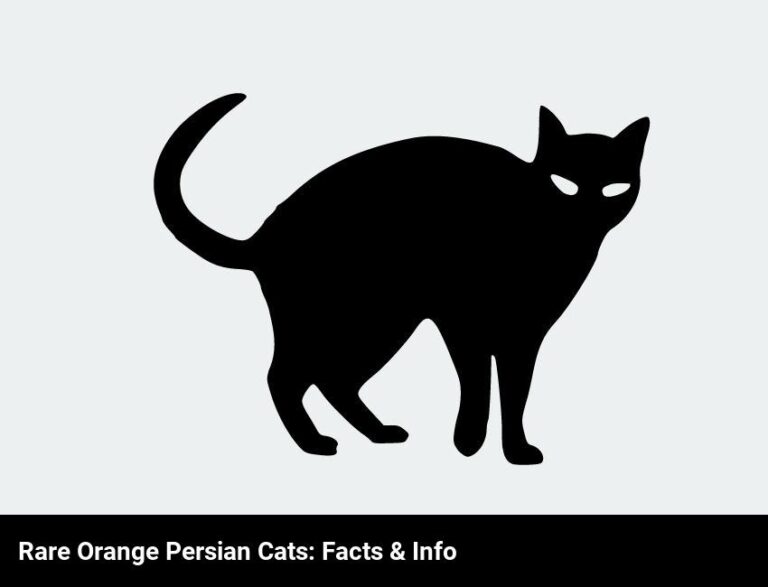Do Persian Cats Sneeze More Than Other Breeds?
No, Persian cats do not sneeze more than other breeds. All cats can sneeze, and the frequency can vary depending on their overall health and environment.
As a Persian cat owner, I know all too well how often these furry felines sneeze. I’ve often wondered: do Persian cats sneeze more than other breeds? After some research, I’ve learned that there are several factors that could influence why Persian cats sneeze more. From their unique facial features to their sensitive respiratory systems, Persian cats have their own set of characteristics that can affect their sneezing frequency. In this blog post, I’ll explore the special characteristics of Persian cats that make them unique, discuss potential factors that influence their sneezing habits, and provide tips on how to reduce their sneezing.
What special characteristics make persian cats unique?
Persian cats have some unique characteristics that make them a beloved pet. For starters, they have a beautiful, long, dense coat that comes in many colors. They also have a unique face shape with a short nose, small ears, and a wide, round head. Their eyes are large and expressive, and their tails are fluffy and full.
What really makes them unique, however, is their personality. Persian cats are known for being sweet and gentle. They also tend to be very laid back and tolerant of other pets, making them a great family pet. They also have a very relaxed attitude, which means they can be content to just snuggle up and sleep most of the day.
Finally, Persian cats are known for their intelligence and playfulness. They love to play with toys and can be very good at learning tricks. They also tend to be very loyal, and are often very attached to their owners. This makes them a great companion for those looking for a lifelong friend.
Overall, Persian cats are a beautiful, unique breed with many special characteristics. They have a beautiful coat, a unique face shape, and a sweet and gentle personality. They are also intelligent, playful, and loyal. All of these characteristics make them a great pet to have in any home.
Does the size of the persian cat’s nose have an impact on their ability to sneeze?
As a Persian cat owner, you may have noticed that your furry friend sneezes quite often. But did you ever wonder if the size of their nose has something to do with it? Well, the answer may surprise you!
Studies have shown that the size of Persian cats’ noses can affect their ability to sneeze. With their flat noses and short noses, they may have more difficulty clearing their airways than cats with longer noses. This can cause them to sneeze more often than cats with longer noses.
The Persian breed also has a tendency to suffer from the occasional runny nose, which could also be attributed to their short noses. This means that their airways may become blocked more easily and more frequently, resulting in more sneezing.
So, in conclusion, the size of the Persian cat’s nose does have an impact on their ability to sneeze. The short, flat noses of the Persian breed can make it harder for them to clear their airways, which can lead to more sneezing. With the right care and attention, however, it is possible to reduce the amount of sneezing your Persian cat experiences.
How does the breed’s hair type affect their ability to sneeze?
Do Persian cats sneeze more than other cats? It depends on their hair type! Persian cats have a very thick and long fur coat, which can make it difficult for them to expel air when sneezing. This is because the long coat is not as light and airy as other cats, which can cause air to become trapped in their nostrils.
While having long, luxurious fur can be a real blessing for Persian cats, it can also be a bit of a hindrance when it comes to sneezing. If the fur is too thick and dense, it can be hard for the air to escape when the cat sneezes. This can lead to the cat being unable to expel the air and having to work harder to sneeze.
Another factor that could affect the rate at which a Persian cat sneezes is the amount of shedding it does. If a cat has a long fur coat and is also prone to shedding, then it can be difficult for the cat to expel the air when sneezing. This is because the extra fur on the cat’s body can clog their nostrils and stop the air from coming out.
In conclusion, the breed of a cat can certainly have an effect on their ability to sneeze. Persian cats, in particular, are more susceptible to sneezing difficulties due to their long and thick fur coats. As such, it is important to keep their fur trimmed and groomed regularly to ensure that they are able to expel air when they sneeze.
Are persian cats predisposed to allergies or other respiratory issues?
Yes, Persian cats can be predisposed to allergies or other respiratory issues. These issues are generally due to the long, thick coat of the Persian cat. Because of their long fur, they can develop furballs in their throats, which can irritate their airway and cause coughing, wheezing, and sneezing. They may also have allergic reactions to things like dust, pollen, and other environmental allergens.
The good news is that there are ways you can help your Persian cat to avoid these allergy and respiratory issues. Keeping their fur clean and brushed regularly can reduce the amount of furballs that form in their throat, and you can use a pet-safe antiseptic shampoo to help eliminate potential allergens. Additionally, getting your cat regular check-ups with a veterinarian can help to identify any potential issues early on.
And while it’s true that Persian cats may sneeze more than other breeds, it doesn’t necessarily mean that they are more prone to allergies. The key is to keep your cat healthy and happy, and pay close attention to any concerning changes in their environment or health.
Do persian cats have different behavior patterns when it comes to sneezing?
Yes, Persian cats do have different behavior patterns when it comes to sneezing. Persian cats tend to be more prone to sneezing than other breeds. This is because their facial shape is brachycephalic, meaning that their faces are flat and their noses are pushed in. This structure can cause them to have blocked sinuses and make it harder for them to breathe. Because of this, Persian cats tend to sneeze more than other breeds.
However, the amount of sneezing that a Persian cat does can vary. Some Persian cats may sneeze more than others due to their individual health or living conditions. Therefore, it is important to monitor your Persian cat’s sneezing behavior and to seek help from a veterinarian if you notice that your cat is sneezing more than usual.
Persian cats may also behave differently when it comes to sneezing. For example, some cats may sneeze when they are feeling stressed or excited, while others may sneeze when they are feeling relaxed or happy. This is because sneezing can be a sign of different emotions in cats, depending on the context.
Ultimately, it is important to note that Persian cats can indeed have different behavior patterns when it comes to sneezing. Therefore, it is important to be aware of your cat’s individual behavior and to seek out help from a veterinarian if you notice any changes in their pattern of sneezing.
Do persian cats have any particular diet needs that could impact their sneeze frequency?
Yes! Persian cats have specific diet needs that could impact the frequency of their sneezes.
First, Persian cats need a diet that is high in essential fatty acids. Without these fatty acids, Persian cats may suffer from poor skin and coat health, which can lead to frequent sneezing. If your Persian cat is sneezing more often than usual, consider adding a supplement to their food with omega-3 and omega-6 fatty acids.
Second, Persian cats need a diet that is high in protein. This is important for keeping your cat’s immune system strong and for helping them to stay healthy. A diet that is low in protein can cause your Persian cat to become more susceptible to infections and illnesses, which can lead to increased sneezing.
Finally, Persian cats need a diet that is low in carbohydrates. Carbohydrates can be difficult for cats to digest, and can cause them to sneeze more often. To avoid this, make sure your Persian cat’s diet is low in carbohydrates and high in protein.
Making sure your Persian cat has the right diet can make a huge difference in their sneeze frequency. If you think your cat’s diet is having an impact on their sneezing, consider talking to your vet to determine the best diet for your cat.
Is the environment that persian cats live in affecting their ability to sneeze?
Yes! The environment that Persian cats live in can have a direct effect on their ability to sneeze. Persian cats are considered to be one of the oldest breeds of cats, and are also known as ‘flat-faced cats’ due to their unique facial features. These cats have an abnormally tiny upper respiratory tract, making them more prone to sneezing.
The environment that Persian cats live in can directly contribute to the number of times they sneeze due to their unique respiratory anatomy. If the air around them is too dry, or if they are exposed to irritants like smoke, dust, or pollen, it can cause them to sneeze more frequently. Living in an environment with high levels of humidity can also increase the chances of a Persian cat sneezing.
In addition, the type of food a Persian cat eats can also affect their ability to sneeze. If a Persian cat is fed a diet that is high in carbohydrates, it can produce an increase in mucus production, which can lead to increased sneezing. If a Persian cat is fed a diet that is low in carbohydrates, it can reduce the production of mucus and, in turn, lead to less sneezing.
Finally, the health of a Persian cat can also play a role in their ability to sneeze. If a Persian cat is living with an upper respiratory infection, they may be sneezing more frequently due to inflammation or irritation of the airways. Additionally, if a Persian cat is living with allergies, they will likely experience more sneezing as a result.
In conclusion, the environment that a Persian cat lives in can have a direct impact on their ability to sneeze. Factors like humidity, irritants, diet, and health can all contribute to an increase in the number of times a Persian cat sneezes.
What can you do to reduce your persian cat’s frequency of sneezing?
Yes, Persian cats do tend to have a higher frequency of sneezing than other breeds. But don’t worry, with a few simple steps, you can help reduce your Persian cat’s sneezing!
First, make sure your furry friend is getting plenty of rest. A well-rested cat is less likely to experience frequent sneezing. Make sure you create a comfortable and calming environment for your cat to help them relax and get a good night’s sleep.
Next, keep your cat’s environment clean. Regularly vacuum and dust your home, and make sure you give your cat’s litter box a good clean at least once a week. Allergy-inducing dust and dander can exacerbate your cat’s sneezing.
You should also make sure that your cat is up to date with their vaccinations and check-ups with the vet. It’s important to make sure your cat is healthy, as illnesses and infections can cause more frequent sneezing.
Finally, make sure your cat is getting a nutritious and balanced diet. Poor nutrition can cause a number of health problems in cats, such as sneezing, so make sure your Persian cat is getting the nutrients they need.
By following these simple steps, you can help reduce your Persian cat’s frequency of sneezing.
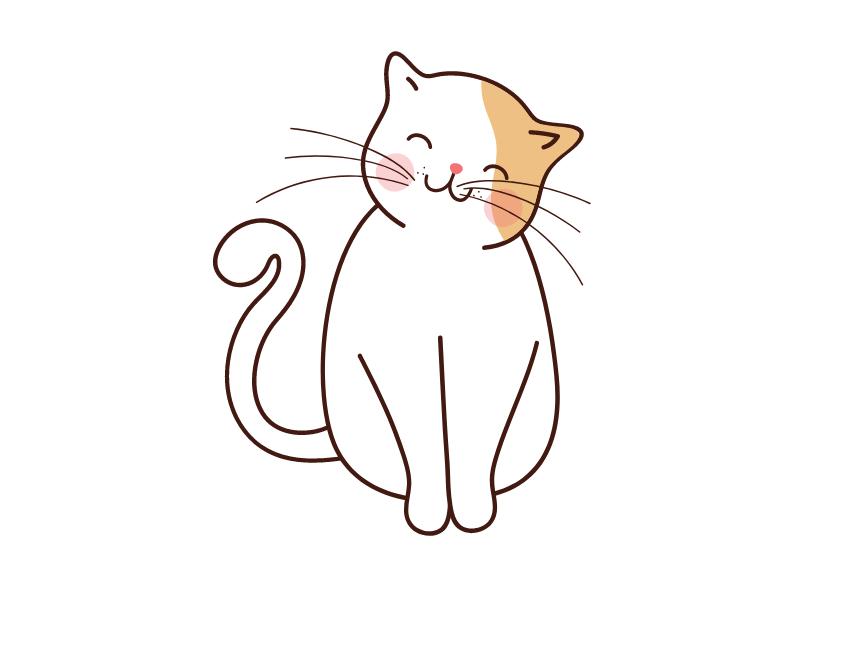
Frequently Asked Questions
Is there a difference in the amount of sneezing between persian cats and other breeds?
Yes, Persian cats do sneeze more than other breeds. This is due to their flatter faces and the hair covering their noses that can cause irritation to their respiratory system. Persian cats are more prone to respiratory problems, making them more likely to sneeze than other breeds.
Why might persian cats be more prone to sneezing?
Persian cats may sneeze more than other breeds due to their long and thick fur. This can irritate the nasal passages of the cat and cause sneezing. The breed also has a shorter snout than other cats, which can make breathing more difficult. Furthermore, the Persian breed is more prone to developing respiratory illnesses, which can also lead to more sneezing.
What are some things you can do to reduce sneezing in persian cats?
To reduce sneezing in Persian cats, you can keep their environment clean, brush their fur regularly, and make sure to feed them high-quality food. Additionally, you should have your cat checked by a veterinarian, who can recommend further steps to reduce sneezing.
Are there any other health concerns associated with sneezing in persian cats?
Yes, there are other health concerns associated with sneezing in Persian cats. Some cats may develop a condition known as rhinitis, which is inflammation of the nasal passages and can cause sneezing, runny nose, and difficulty breathing. Additionally, cats with allergies may have frequent sneezing episodes due to their sensitivity to certain allergens. Finally, Persian cats may be more prone to respiratory infections, which can also lead to sneezing.
Does diet play a role in how much persian cats sneeze?
Yes, diet can play a role in how much Persian cats sneeze. Persian cats are prone to respiratory issues, so their diet needs to be tailored to their needs. A diet high in fibre, fresh fruits and vegetables, and lean proteins can help to reduce sneezing. Make sure to consult a veterinarian for the best diet for your Persian cat.

